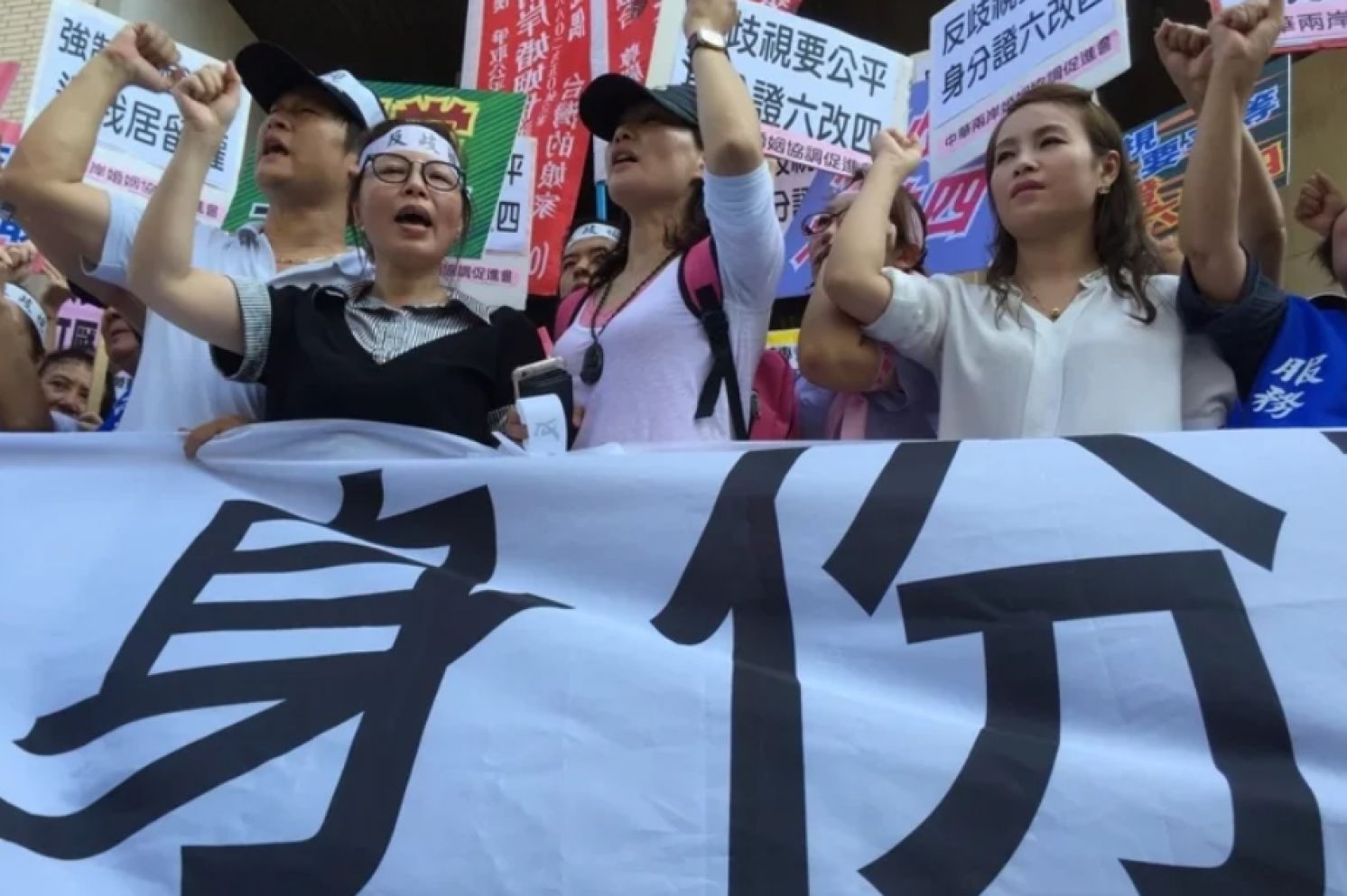
Beyond Blocking Mainland Chinese Spouses:DPP Seeks Enemies Within Taiwan
United Daily News Editorial, March 2, 2024
Kuomintang (KMT) legislators are pushing for legal amendments to reduce the naturalization period for mainland Chinese spouses from the current six years to four years, aiming for equal treatment with other foreign spouses. This proposal has gained support from the Taiwan People's Party (TPP). However, the Democratic Progressive Party (DPP) has voiced various objections, expressing concerns about the potential abuse of health insurance and national security issues, citing the ongoing pressure from mainland China. Despite the DPP's usual advocacy for equal rights, their stance shifts when it comes to mainland Chinese individuals. Beyond obstructing mainland spouses, the DPP’s actions to identify internal enemies in Taiwan are becoming more pronounced.
While other foreign spouses can obtain Taiwan (Republic of China) citizenship in four years, mainland Chinese spouses face a six-year period. From a human rights perspective, this discrepancy constitutes discrimination. The current number of mainland spouses is approximately 400,000, only half the number of foreign migrant workers. Moreover, with the worsening cross-strait relations, the yearly increase in their numbers is declining. To claim that this small proportion poses a national security threat or contributes to a so-called "population cleansing" is unfounded. Associating discontent towards Communist China with mainland spouses is an emotionally biased transfer and unfair to this group.
The KMT's proposal aims to restore equality for mainland Chinese spouses rather than provide them with preferential treatment. The TPP has expressed agreement and will propose its own version of legal amendments. Despite the DPP's strong opposition, recent shifts in parliamentary dynamics, as seen in the "KMT supporting the TPP” during the recent legislative committee election, suggest that the DPP might struggle to resist this emerging wave of new parliamentary sentiment. Insisting on a rigid stance would only make their discriminatory actions more unsightly. As TPP Legislator Huang Kuo-chang stated, "The era of Ker Chien-ming’s (referring to the DPP’s legislative whip) unchallenged dominance has ended." The DPP would be wise to recognize the current trends and sentiments.
As for the statements from the DPP, once the naturalization period for mainland Chinese spouses is shortened, a large number of their mainland relatives might immigrate to Taiwan through family reunification, allegedly causing a severe strain on Taiwan's health insurance resources. However, this assertion appears to be an exaggeration. According to regulations, the stay duration for mainland spouses' parents coming to Taiwan for family reunification is limited to one to three months, minimizing concerns about long-term dependence. Even for those parents over the age of 70 seeking permanent residency in Taiwan, the government only offers 60 slots per year. Hence, the claim of “overburdening the health insurance” is baseless.
The DPP’s anti-China ideology reveals just the tip of the iceberg in discrimination against mainland Chinese spouses. This bias tends to spread like cancer. For instance, Taiwanese business people in mainland China, originally compatriots courageously contributing from across the strait, often become suspicious figures in the eyes of the DPP. Taiwan has been unable to implement “non-resident voting” because the DPP considers Taiwanese business people and professionals in the mainland as “compatriots from the other side” that pose security concerns, even if it means sacrificing some democratic principles. Similarly, mainland Chinese students, who should be a new generation most eager to embrace and understand Taiwan's democracy, face obstacles in their journey of studying and immersing themselves in Taiwan's democratic values due to the entrenched mindset of certain factions within the DPP.
In addition to targeting mainland Chinese spouses, students, and Taiwanese business people there as potential threats to national security, the DPP is unabashedly searching for potential enemies within the island. Last year, hundreds of village chiefs were investigated by the administration of President Tsai Ing-wen for accepting hospitality during their visits to mainland China, citing violations of the Anti-Infiltration Act and alleging collusion with Communist China under the pretext of “election interference.” Suspecting the loyalty of grassroots village chiefs merely based on attending a simple dinner raises questions about whether the Tsai administration genuinely cares about national security or is deliberately creating a false narrative to secure election victories. People should be aware of this.
Recently, DPP Legislator Shen Po-yang claimed that if a conflict erupts in the Taiwan Strait, “a puppet regime” could emerge on the first day suggesting that it alone represents the legitimate R.O.C. government and could negotiate peace with Communist China. He urged Taiwan to learn from the Ukrainian experience and be vigilant. This rhetoric not only extends the political “witch hunt” to the domestic arena but also involves searching for potential enemies among fellow citizens. What's alarming is that Shen, with limited military knowledge and a brief visit to Ukraine, equates Taiwan with Ukraine without addressing how to prevent a conflict in the Taiwan Strait or advocating for peace on behalf of the people. Instead, he jumps directly to finding potential enemies within the island, aiming to eliminate them. This Nazi-like mentality, compared to obstructing the naturalization of Mainland spouses, reveals even more sinister intentions. Considering a government that can easily label any opposition party as a threat and arbitrarily detain village chiefs, identifying who the “enemies of the state” are becomes a dangerous game.